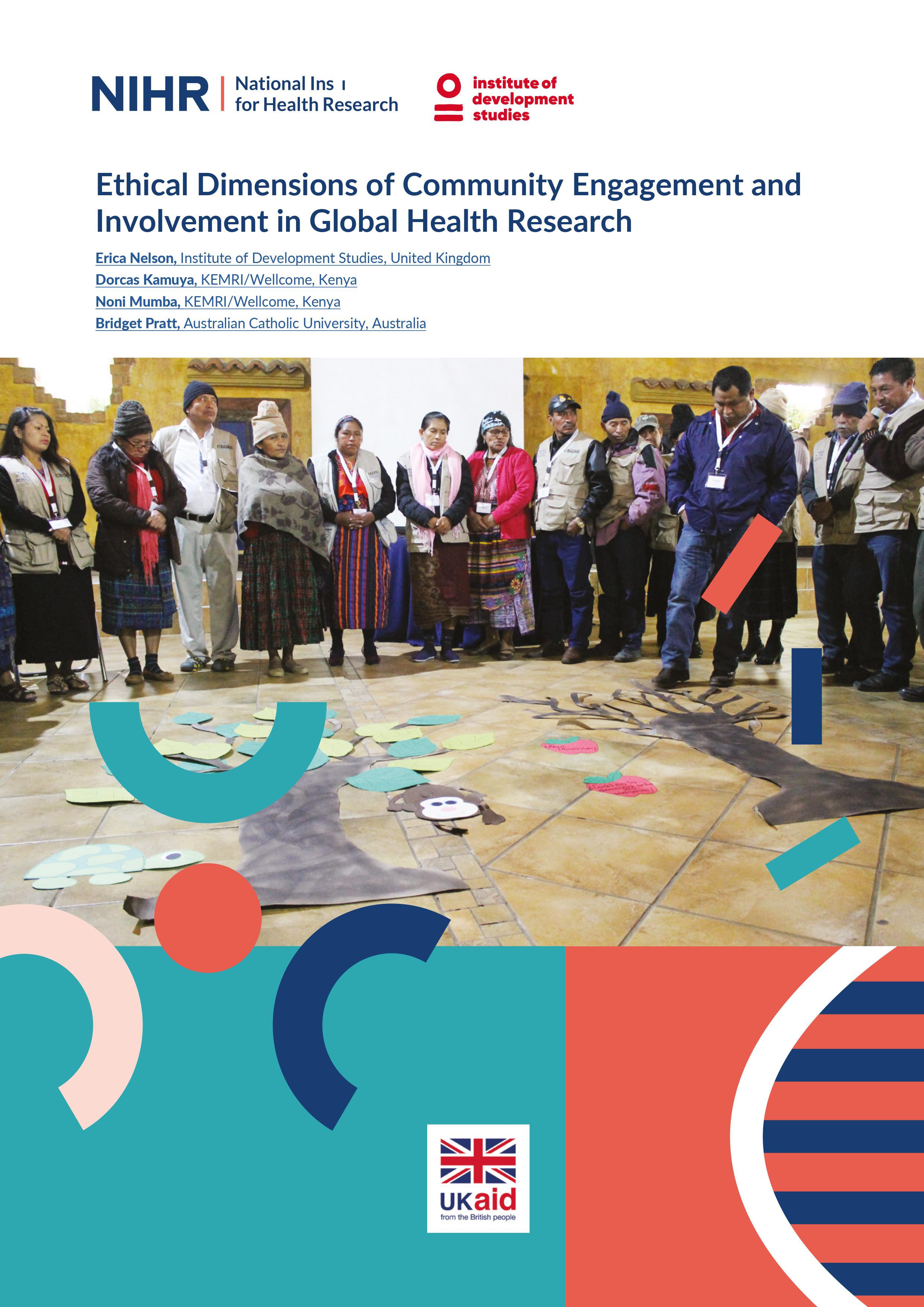In this second in a three-part series of NIHR learning resources about community engagement and involvement (CEI), they dive into the topic of ethics. For NIHR’s Global Health Research Portfolio, CEI is both a means to achieve greater impact, as well as reflective of an institutional commitment to collaborative research. Within global health research broadly speaking, CEI activities may be designed to achieve a range of objectives, ranging from the instrumental to the transformative.
This brief does not focus explicitly on formal ethics review processes, but rather on the ethical goals of CEI itself. These ethical dimensions of CEI include:
- the importance of establishing mutual respect and relationships of trust at community-level;
- working out appropriate community benefits;
- engaging in consultative processes to address any concerns related to risks of participation and to inform study design
- building a deeper understanding of how the research interacts with vulnerable and marginalised groups within communities
To these established ethical goals, the authors add social justice and health equity imperatives.
Taking a social justice approach to CEI
As viewed through a social justice lens, ethical best practice demands meaningful community engagement and involvement in all stages of global health research. To put it bluntly, individuals and communities should be involved in decisions that affect their lives. This is clearly the case when the research questions being addressed have the potential to contribute to improving access, quality and inclusivity of health services. Such an approach can make explicit what might otherwise be implicit biases that inadvertently or purposively exclude marginalised and minority perspectives. Developing a meaningful CEI approach is not without its challenges. What follows captures a few key issues raised by the recently launched a Research for Health Justice toolkit and framework.
Visit the resource page on the NIHR website
Read this blog piece from Noni Mumba, Head of Engagement at the KEMRI Wellcome Trust Research Programme (KWTRP) in Kenya, where she writes about how she overcame some of the ethical challenges arising during the COVID-19 pandemic to be able to continue her work connecting with the community.
This work is licensed under a Creative Commons Attribution 4.0 International License



Please Sign in (or Register) to view further.